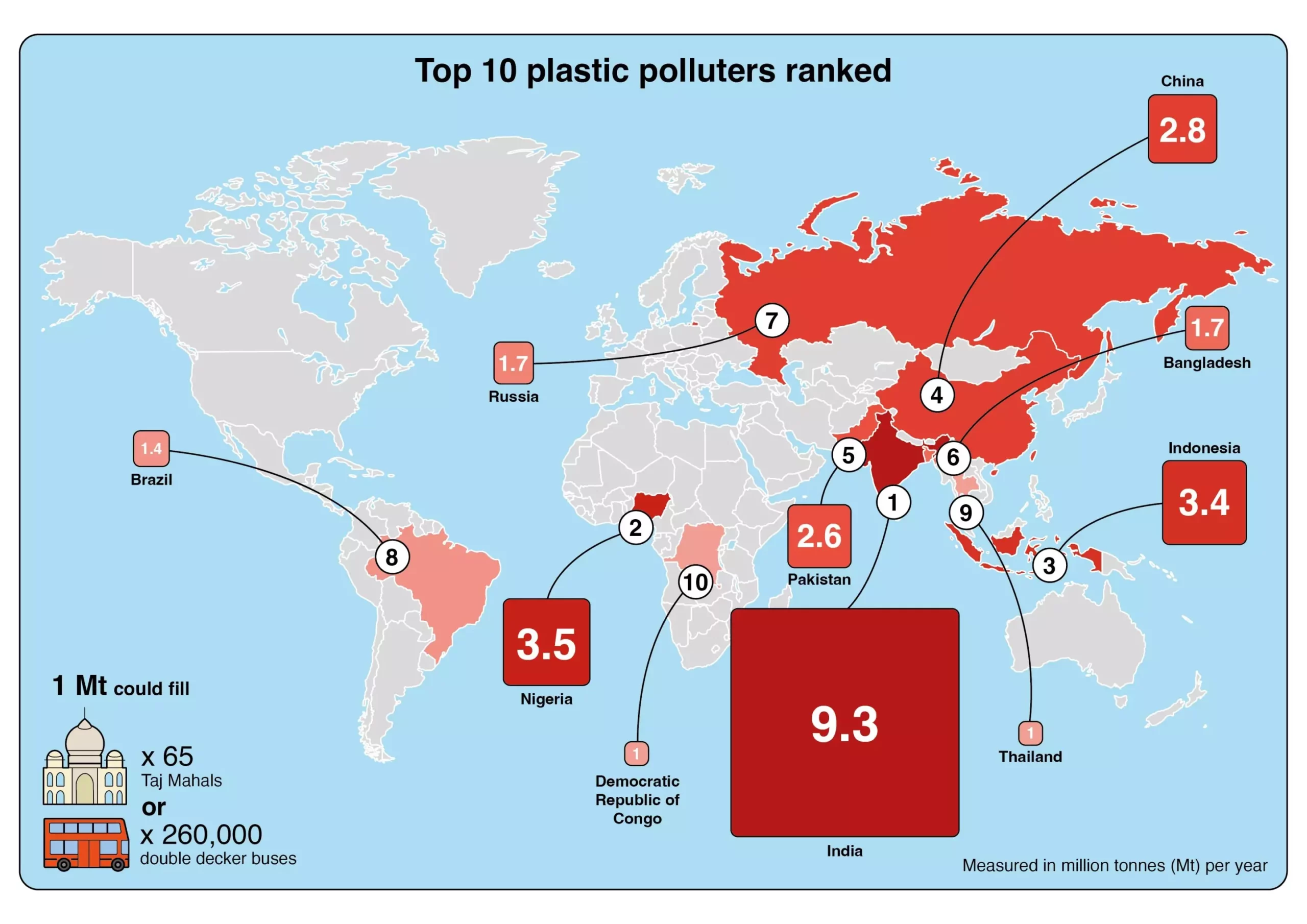Plastic pollution has evolved into one of the most pressing environmental issues of our time, significantly impacting ecosystems and human health. A recent study by researchers at the University of Leeds underscores the alarming scale of this crisis, revealing the staggering amount of plastic waste generated globally. Despite widespread awareness of the plastic problem, the study highlights a disturbing reality of uncollected waste and the rise of open burning as an alarming practice for waste disposal.
The comprehensive research, which utilized artificial intelligence to assess waste management practices in over 50,000 municipalities worldwide, uncovers that a massive 52 million metric tons of plastic entered the environment in 2020 alone. To visualize this quantity, it is equivalent to encircling the globe more than 1,500 times. This immense figure underlines the urgent need for effective waste management solutions to mitigate the looming dangers posed by plastic waste.
One of the most shocking revelations from the study is that more than two-thirds of the global plastic pollution is attributed to uncollected rubbish. Astonishingly, around 1.2 billion individuals—about 15% of the world’s population—lack access to essential waste collection services. Without organized systems for disposing of waste, communities are often left with no choice but to abandon their waste in their surroundings or resort to burning it openly, which poses significant health risks.
Dr. Josh Cottom, a researcher involved in the study, emphasizes that uncollected waste is the primary source of plastic pollution. The consequences of this lack of waste management disproportionately affect impoverished communities, which may not have the resources or means to cope with the impacts of plastic waste. The study suggests that improving waste management infrastructure could markedly reduce plastic pollution levels and enhance the quality of life for billions.
One critical aspect that has received insufficient attention in discussions surrounding plastic waste management is the hazardous practice of burning plastic. About 30 million metric tons of plastics were incinerated in 2020 without any environmental controls, contributing to an array of health threats, including reproductive disorders and neurodevelopmental issues. The open burning of plastic waste not only exacerbates air quality problems but also disperses harmful chemicals into the environment, putting vulnerable populations at risk.
The study identifies India as the leading contributor to plastic pollution, surpassing prior assumptions that placed China at the forefront. With approximately 9.3 million metric tons of plastic waste produced, India’s waste management challenges stem from a combination of rapid population growth and inadequate infrastructure. Other countries such as Nigeria and Indonesia follow closely, demonstrating that the issue is not confined to any single region but is a global crisis.
Global Disparities in Plastic Waste Management
The contrast in plastic waste management between the Global North and South is stark. High levels of plastic consumption in wealthier nations have led to a different profile of plastic pollution, where littering surfaces as the primary issue due to more comprehensive waste management systems. Conversely, many countries in the Global South experience lower total plastic waste generation but face critical challenges in proper collection and disposal.
In Sub-Saharan Africa, while total plastic waste may appear low, the per capita burden reveals a different story. On average, individuals in this region contribute around 12 kg of plastic pollution annually—equivalent to over 400 plastic bottles—indicating a disturbing trend that, if unaddressed, could lead to these nations becoming major contributors to global plastic pollution in the coming decades.
To combat this multifaceted crisis, researchers are advocating for a new, legally binding global treaty targeting plastic pollution—a “Plastics Treaty” that would mandate improvements in waste collection infrastructures and promote the circular economy. Dr. Costas Velis, another co-author of the study, emphasizes the urgency of addressing this public health crisis head-on, highlighting that communities without waste collection services are driven to burn or dump their refuse, leading to long-lasting environmental damage.
Effective policymaking is essential to mitigate plastic pollution. The findings of this research serve as a critical baseline, akin to those established for climate change, that can guide efforts and strategies to reduce plastic waste. By investing in waste management systems, increasing recycling capabilities, and fostering public awareness about the consequences of plastic pollution, society can begin addressing this urgent challenge, bettering the lives of countless individuals worldwide while preserving the environment for future generations.
The study is not merely a reflection of despair but a blueprint for action. With collaborative efforts and a commitment to change, the tide of plastic pollution can be turned, paving the way for a sustainable and healthier planet.


Leave a Reply